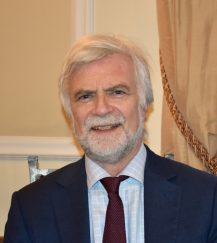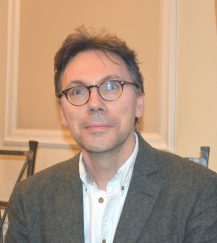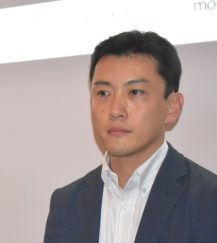 Annual Seminar Series Seminar
Annual Seminar Series SeminarThursday 25 October 2018
6:00pm – 7:30pm
New approaches to addressing climate change in the UK and Japan
ドリンクレセプション 7:30pm – 8:00pm
13/14 Cornwall Terrace, Outer Circle (entrance facing Regent's Park), London NW1 4QP
大和日英基金 主催
The summer of 2018 saw scorching temperatures recorded globally, and the UK and Japan were no exceptions. In central Tokyo, temperatures reached over 40°C – 12 degrees higher than the average temperature for summer months; and in the UK, the Met Office confirmed this summer as the hottest-ever recorded, with records broken in both temperature and rainfall. While global temperatures continue to rise as fast as double the rate predicted by climate modelling, industrialised nations keep committing to meeting the 2-degree target of the Paris Accord, despite President Donald Trump’s announcement that the USA intends to withdraw from the agreement. The economic, social and environmental consequences of an increasing global temperature and rising sea level resulting from climate change, could be devastating for modern economies including Japan and the UK. Therefore, adopting adequate policies is essential.
In this seminar, Professor Sam Fankhauser from LSE’s Grantham Research Institute and Dr Takeshi Kuramochi of the New Climate Institute outlined the current patterns and impacts of climate change. They also discussed the most important changes in policy being recently implemented by the governments of the UK and Japan, and explored other necessary measures to effectively tackle global warming and climate change.
A written summary of the presentations can be found via the button below:
Written summary of the presentations, PDFA video of the seminar can be found here:
コントリビューターについて

Professor Jim Skea
Professor Jim Skea (Chair) is currently the Co-chair of Working Group III of the Intergovernmental Panel on Climate Change. Working Group III covers the mitigation of climate change, referring to methods for reducing greenhouse gas emissions and enhancing atmospheric sinks. From 2012 to 2017, Jim was Research Councils UK Energy Strategy Fellow. Until 2012, Jim was Research Director of the UK Energy Research Centre (UKERC). He led the UKERC Phase I Energy 2050 project, which led to the publication of the book Energy 2050: Making the transition to a secure low-carbon energy system. He has also published on indicators for assessing energy innovation, the impact of intermittent renewables on electricity generation, security of gas supply and UK, Japanese and German responses to the Fukushima accident.

Professor Sam Fankhauser
Professor Sam Fankhauser is Director at the Grantham Research Institute on Climate Change and Deputy Director of the ESRC-funded Centre for Climate Change Economics and Policy, both at the London School of Economics. He is also an Associate Director at economics consultancy Vivid Economics and a Non-Executive Director of CDC Group, the UK’s development finance institution. Before joining LSE, Sam worked at the European Bank for Reconstruction and Development, the World Bank and the Global Environment Facility. From 2008 to 2016 he was a member of the UK Committee on Climate Change. Sam has studied economics at the University of Berne (Switzerland), the London School of Economics and University College London.

Dr Takeshi Kuramochi
Dr Takeshi Kuramochi is a climate policy researcher at NewClimate Institute since 2015. With more than ten years of research experience, he leads projects analysing emissions reduction scenarios for major emitting economies as well as subnational and non-state actors. Takeshi has published more than twenty peer-reviewed articles, and since 2016 he contributes to the annual UNEP Emissions Gap Reports as a lead author on the chapter assessing G20 countries’ progress. Prior to NewClimate, Takeshi worked as a senior climate policy researcher at the Institute for Global Environmental Strategies in Japan, where he carried out extensive research on Japan’s climate and energy policies as well as on the international negotiations for the post-2020 climate regime. Between 2006 and 2011 Takeshi worked as a researcher on carbon capture and storage technologies at the Copernicus Institute of Sustainable Development, Utrecht University (the Netherlands), where he is currently a visiting researcher.